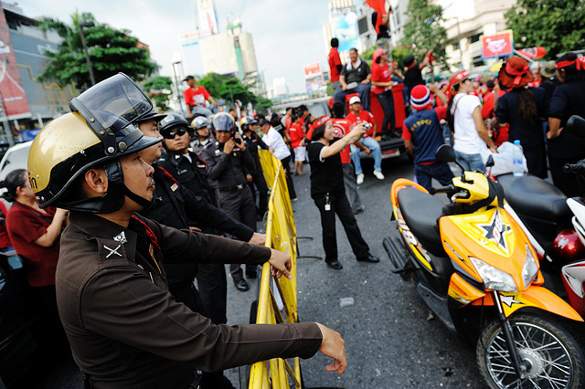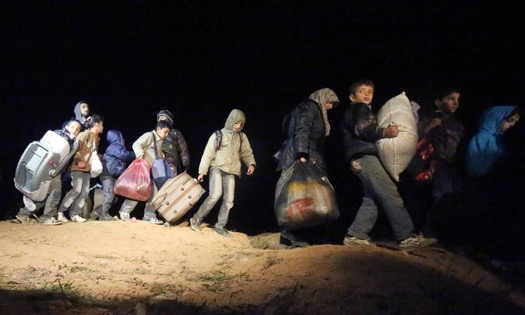Tips for Avoiding Trouble in a Foreign Country

Getting out of a foreign country during a disaster can be a far-different experience than what you can expect on the home front. You can end up facing a myriad of challenges that can make an otherwise simple process very complicated and time-consuming. Let’s take a look at some things to consider if you end up getting caught up in a crisis abroad, so that you can have the best possible chance of getting out as quickly and safely as possible.
Situational Awareness

Language differences, cultural barriers, lack of emergency services and responsive police are all common things that travelers encounter on the best of days in some foreign countries. Imagine the chaos and confusion that can ensue during a crisis. It’s more important than ever to know your surroundings and have escape plans in place while you are abroad. Know where your embassy is located and the fastest route to get there. Know one or two routes to the airport or the border of a neighboring country. Understand arterial roads and where they lead. Evaluate the effectiveness of transportation systems, and become familiar with more than one option to use to get out of the area.
The more you can become familiar with the basics will help you to make the best of choices based on the circumstances at hand. Just remember, the trick is to avoid getting lost, getting caught up in the chaos or getting stuck in a dangerous situation with no real escape available.
Avoid Travel in Dangerous Times

The best way to avoid getting stuck abroad during a crisis is to stay away in the first place. Don’t travel to areas that are prone to severe storms or flooding during the rainy season. Avoid countries that are suffering from tense political instability or civil unrest. Use your best judgment, but it may be more prudent to alter your plans and travel somewhere else if things are not as safe as usual at your favorite destination.
Flee to the Right Neighboring Country
Neighboring countries are not like states here at home. They have their own laws, culture and attitudes towards Americans. The last thing that you need is to escape one crisis and land in another. Do some research beforehand and choose escape countries that are safe and friendly. Know how to get there. Become familiar with visa procedures and other factors that can impact your ability to cross the border on short notice.
Get out Early
Say you’re facing an approaching hurricane or the government is about to collapse. There are generally a lot of signs in advance that indicate what’s on the horizon. Take these seriously, and consider getting out early, out of an abundance of caution. We here stories every year about foreigners getting marooned in other countries in the wake of severe storms, flooding or political unrest. What do they all have in common? The waited too long and couldn’t get out in time. It’s better to be first on the plane, train or bus to the border than to take your chances if and when the SHTF. Get out early and don’t focus on the disappointment of cutting your trip short.
While traveling overseas is a great way to work, live, study or spend a vacation, things can go from good to bad in the blink of an eye. Foreigners are particularly vulnerable to crises, and it’s important to be over-cautious or paranoid instead of staying put and hoping for the best. Remember, you can always go back once things settle down and return to normal. However, you may not have that chance if you get swept up in the chaos and uncertainty associated with disasters abroad. Only you can decide what the best choices are during any given situation, but chances are that you will be much better off and less likely to become a victim if you’re out of the area altogether.


